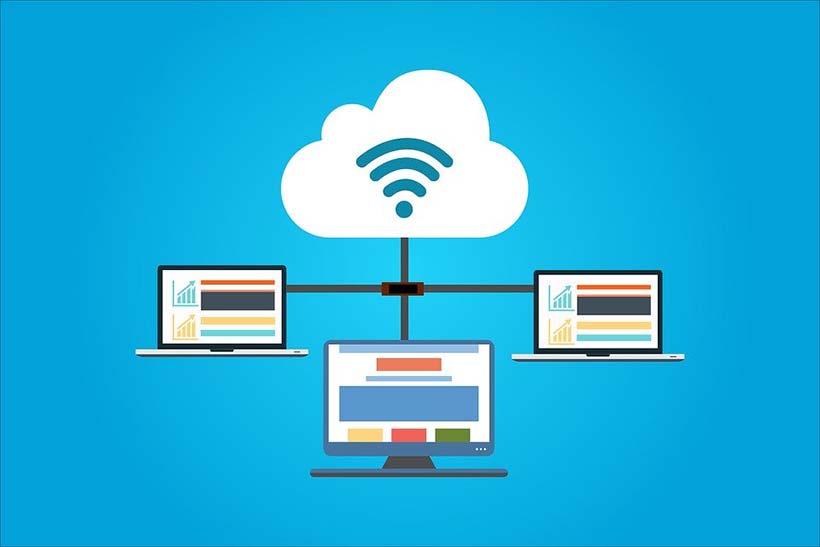Gone are those days when businesses considered using applications the old way.
We are currently living in an era where technology is leading the world.
From space exploration to digging deep down Mariana Trench, technology is being used everywhere.
And the same goes for the current industries as well.
It doesn’t matter whether you are working in the healthcare industry or in the IT industry; you will have to use technology in one form or another.
Taking technological management services from reputed MSPs is a part of using technology.
But in this blog post, we are going to talk about the most revolutionary technological gift to business – the cloud.
Article Chapters
Background
Cloud applications have become the order of the day and now each and every type of business is using cloud in one form or another.
Modern day cloud applications offer heightened security, ease of use and innovative solutions.
This is the main reason why so many businesses are moving to cloud applications and leaving behind their old way of using locally installed applications.
In most of the cases, you are always just a click away from setting up a free trial and a couple more clicks away from purchasing a full user license.
But wait, you shouldn’t move to the cloud platform hastily.
There are many factors to consider before moving to the cloud, otherwise you will never be able to reap the advantages of cloud.
So, let’s go through some of the key details that you need to consider before moving to the cloud platform.
In order to use the cloud at its peak efficiency and unlock the power of cloud without any hassle, it’s best to have as much knowledge on the subject as possible.


Adaptability
The increasing heterogeneous usage by most of the businesses from different industries require some sort of adaptability while using the cloud platform.
This is why you will need to consider adaptability before moving to the cloud platform.
The way in which you will be using the solution, the platform that will be used by you and your employees and the way the user will deal with the system always varies.
It is constantly evolving.
You should know that the latest context in the change from the user’s side is the transition to mobile computing.
Most of people from different countries become focused on mobile technologies and have adopted this concept into their private lives.
Subsequently, they have similar expectations from their business life as well.
It is the responsibility of your IT department to keep tabs on the latest trend and currently, it is necessary to satisfy the demand from mobile technologies.
You will need to ask some very common questions such as: is your cloud solution flexible enough to provide easy and seamless access to mobile devices?
Without flexibility, you will never be able to use a cloud solution at its peak efficiency.
Integration
You should know that most of the applications that you are working on are dependent upon other applications for data.
If you will not be able to use data from one application to another automatically, then you will have to spend a lot of time exporting and transferring data manually.
That increases the risks related to a data breach.
Using separate data pools is surely the worst-case scenario for most of the businesses as it leads to unsynchronised content.
If you will have unsynchronised content, then you will have to deal with redundancy and inconsistency in data.
Data from different cloud applications like QuickBooks Enterprise hosting can enrich cloud services and it can also provide comprehensive insight as well.
In general, most services offer web interfaces.
There are some cloud vendors in the market that also offer REST interfaces.
Complex interfaces require a tool manage connectivity and transformation in order to easily manage future challenges.
You will need to look at whether your cloud service provider offers sustainable access to all important data objects and methods.
It is necessary to work on a platform that offers proper integration of applications so that employees can get a single point for accessing each and every type of data.
Migration
When we are done with the aspect of integration then the next thing that we will need to look at is migration.
What you will do if your cloud vendor goes out of service?
Will you be able to migrate your data and your applications to another cloud vendor without any hassle or will you be stuck with the same cloud vendor?
If you are going to choose a cloud hosting provider then you will need to ask these questions first.
Otherwise using the hosting service if your cloud vendor goes out of business becomes a total disaster.
The longer the cloud service is being used, the more important and valuable are the assets that have been developed.
You should know that common standards can make your resources reusable otherwise you will lose it all.
If you are going to make a final decision on QuickBooks hosting providers then you will need to ask yourself whether you will be able to keep your data and other resources if you are going to move to another cloud vendor?
It is very necessary to consider these 3 things before moving to the cloud as it will help you to use cloud solutions in the best possible way.

